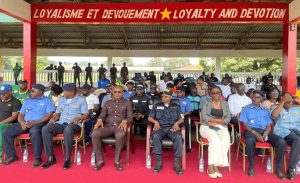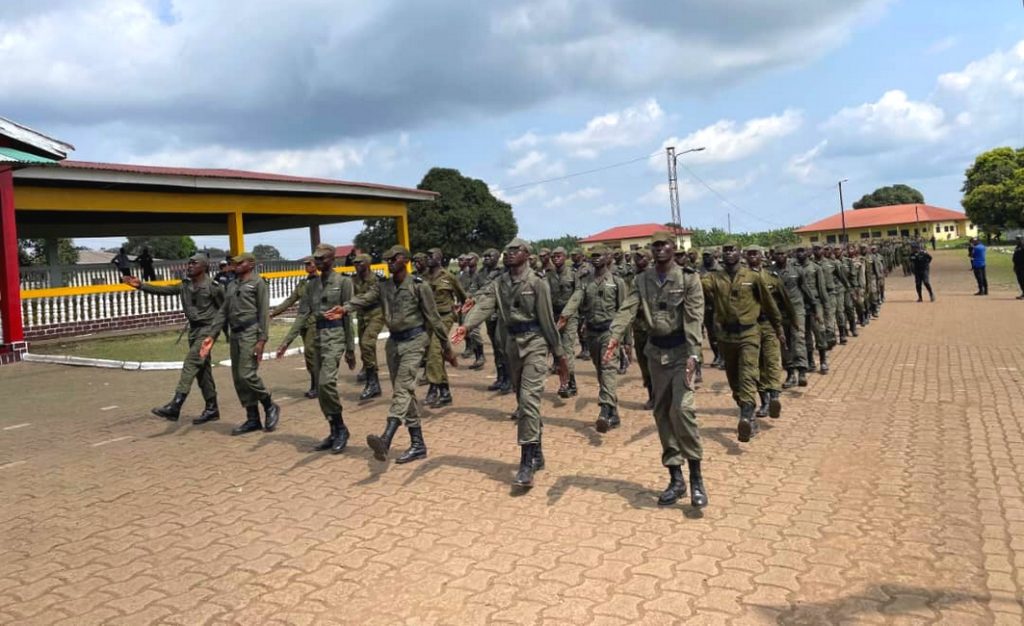The Mutengene Police Training College (CIAP) experienced a very special moment on Thursday 21 November 2024 due to the Simplified Military Training (SMT) for NASLA trainees.

On Thursday 21 November 2024, the NASLA SMT Organising Committee carried out a mid-term evaluation of trainees of the 2nd batch of the Initial Training Programme at the CIAP.
Under the coordination of the Director General of NASLA, the purpose of the visit was to review and assess the progress of the training through the various workshops involved in the programme: the Command Workshop, the Civics, Patriotism and Respect for Institutions Workshop, the Weapons Workshop and the Discipline Workshop.
 The meeting took place in the presence of NASLA staff, committee members, as well as Police Superintendents and Senior Police Superintendents, focal points of DGSN.
The meeting took place in the presence of NASLA staff, committee members, as well as Police Superintendents and Senior Police Superintendents, focal points of DGSN.
For nearly 2 hours, workshop leaders and hand-picked trainees presented the various training courses, followed by spectacular demonstrations.
The Session closed with a friendly football match between the ENSP and NASLA, which ended with a score of 2 -1 in favour of NASLA.
